CUNY SPH is New York’s hub for sexual and reproductive justice scholarship and advocacy — preparing the next generation of public health leaders to stand up for and advance the human right to health.
Sexual and Reproductive Justice Hub
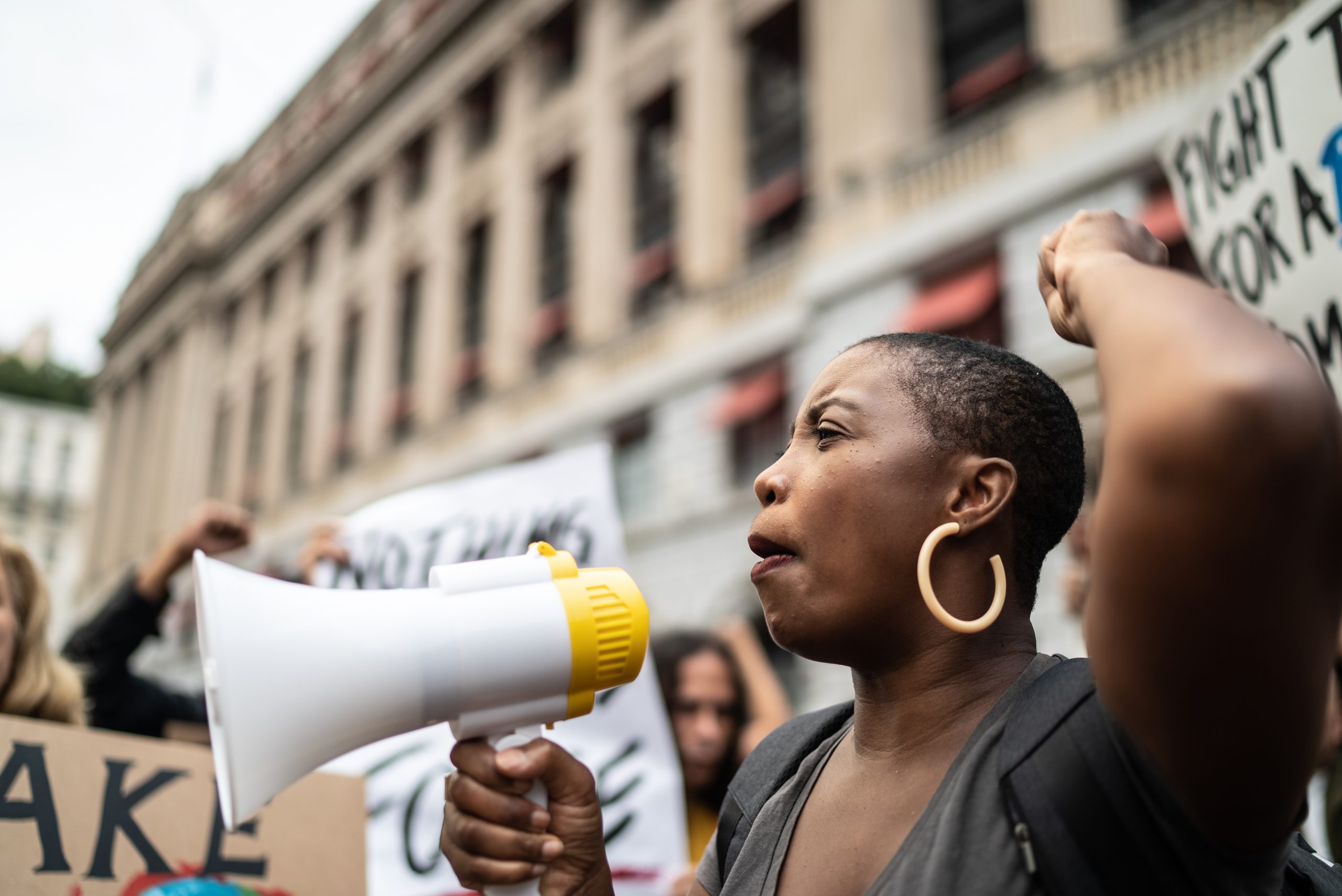
About the SRJ Hub at CUNY SPH
CUNY SPH is New York’s hub for sexual and reproductive justice. Protecting the right to reproductive autonomy is critical. In our post-Dobbs world, reproductive health injustices abound, disproportionately burdening people of color, adolescents, and those with few financial resources. CUNY SPH’s core mission is to advocate for policy and action that advances social justice and improves health outcomes for all, and we are at the center of the fight for reproductive justice. The CUNY SPH Sexual and Reproductive Justice Hub, or the SRJ Hub, coordinates solutions-oriented scholarship, training, and advocacy, centering the lived experiences of women of color and funding their and other marginalized people’s work.
SRJ Hub Highlights
Dr. Sabrina Das joins SRJ Hub as Harkness Fellow
Dr. Sabrina Das has joined the SRJ Hub as a Harkness Fellow, supported by the Commonwealth Fund, for the 2024-25 academic year. She will be studying the abortion landscape, harm reduction, and the health care equity work around abortion care in New York.
She is a consultant obstetrician and gynecologist at Queen Charlotte’s & Chelsea Hospital in London and an honorary senior clinical lecturer at Imperial College. She is also a national maternity improvement advisor at NHS England and a member of the board of trustees for Medecins Sans Frontieres UK.
After graduating with honors from Glasgow Medical School in 2004, she worked in Scotland, South Africa and London, completing specialty training in northeast London. She has advanced training in high-risk obstetrics, abortion care, maternal medicine and medical education. As a consultant, she has led local, regional, and national teams in quality improvement, recently completing a senior leaders apprenticeship with Henley Business School. She believes passionately in service to vulnerable communities and the single most disenfranchised group in the world – women and girls – which led her to Medecins Sans Frontieres, with whom she has worked in war-torn Yemen in 2021 during the COVID pandemic.
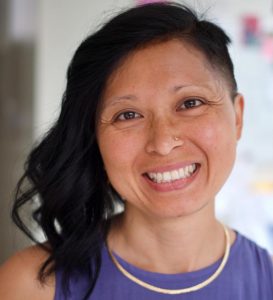
SRJ Pioneer Byllye Avery Keynote Speaker at 2024 Commencement
CUNY SPH celebrated the Class of 2024’s commencement on Tuesday, June 4, at the historic Apollo Theater in the heart of Harlem. The beloved activist Byllye Avery gave the keynote address and inspired the crowd with recollections of her own journey as a founding mother of reproductive justice and a fierce leader in the movement to address and improve the health and wellness of the 19.5 million Black women and girls in the U.S. At a moment when every tenet of reproductive justice is threatened in the U.S. and globally, Avery urged students to love themselves and live courageously, despite the very real fear they will experience as advocates for health as a human right. You can listen to her full remarks here.
CUNY SPH has launched the Byllye Avery Sexual and Reproductive Justice Professorship Endowment Campaign, which will create the nation’s first endowed public health professorship in sexual and reproductive justice. Learn more about the professorship.

Press Coverage
The lancet
Terry McGovern: reforming sexual and reproductive justice training
CUNY SPH Senior Associate Dean Terry McGovern speaks with The Lancet about her impactful career, pathways to address today’s reproductive health crises, and the SRJ Hub’s solutions-focused, multidisciplinary approach.

BMJ Editorial
U.S. abortion restrictions are causing widespread harm
CUNY SPH Senior Associate Dean Terry McGovern and PhD student and adjunct professor Ira Memaj, along with Northeastern University’s Samantha Garbers, shed light on the devastating consequences of restrictive abortion laws across the U.S.
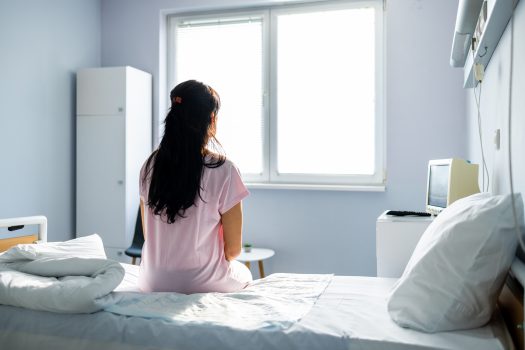
press release
CUNY SPH’s Sexual and Reproductive Justice Hub receives a major boost in NYS budget
The SRJ Hub at CUNY SPH received $500,000 in the New York State enacted FY2025 budget, providing new and necessary support for its educational, scholarly, and advocacy efforts.
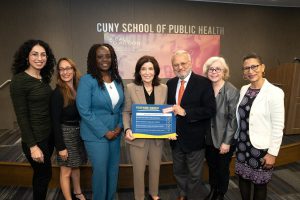
Boston Globe op-ed
Supreme Court shouldn’t undermine FDA’s authority on medication abortion
Medication abortion is used in 63 percent of abortions in the United States and is approved for use in nearly 100 countries around the world. The scientific evidence overwhelmingly backs the safety of the drug. In an op-ed for the Boston Globe, Terry McGovern and Ayman El-Mohandes make the case.
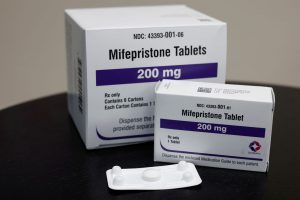
SRJ HUB STATEMENT
Women’s health and rights under attack in Alabama
A statement from the Sexual and Reproductive Justice Hub at CUNY SPH in response to the Alabama Supreme Court ruling in Le Page v. Mobile Infirmary Clinic, Inc.

A GLOBAL FEMINIST PARTNERSHIP
From 16 to 365 Days of Activism to End GBV
In 2024 the CUNY SPH took over as host of the Global 16 Days of Activism Against Gender-Based Violence Campaign. For over thirty years this civil society-led campaign has brought together local and global feminist activists and movements to raise awareness of the many forms of gender-based violence, its root causes and impact, and pathways to prevention and accountability. Historically the campaign has run for 16 days, from International Day for the Elimination of Violence Against Women (November 25) to Human Rights Day (December 10).
Under CUNY SPH, the campaign will transition into a year-round initiative, reflecting the 365-days-a-year work of feminist activists to shift norms, secure accountability, and transform power structures that oppress women, girls, and gender diverse people. This as an iterative, collaborative process that will evolve over time as we continue to learn together.

SRJ Scholarship
Byllye Avery SRJ Professorship
Named for the incomparable Byllye Avery, a pioneer in women’s health, thought leader in Reproductive Justice, and founder of the Black Women’s Health Imperative, this professorship will centralize SRJ programming, research, and scholarship at the school. The program also focuses on leadership development with an emphasis on challenging political environments and anti-evidence trends. This will empower the next generation of public health leaders to dismantle barriers and proliferate justice. Learn more about this endowed professorship.
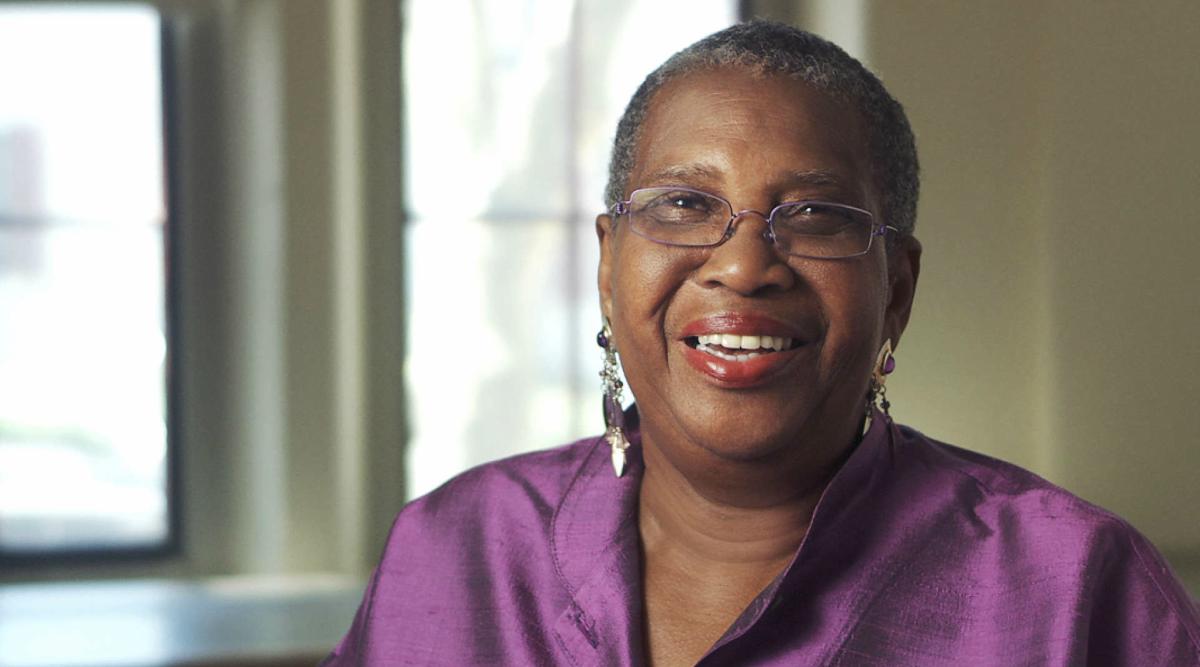
SRJ Curriculum at CUNY SPH
The CUNY SPH curriculum provides MPH and PhD students with an understanding of the socio-historical and political contexts that have and continue to shape related health outcomes across the lifespan, as well as a foundation for research and programmatic activities in maternal, child, reproductive and sexual health. CUNY SPH embraces a holistic approach to sexual and reproductive health within an SRJ framework that recognizes the diversity of human sexual expression, relationships, and family structures; promotes informed, healthy, respectful, and responsible choices, free from coercion; and supports increased access to elective preventive, screening, treatment, and support services.
Research
- Audit of existing federal funding (NIH, EPA) available to study the role of environmental exposures in Black maternal and infant mortality to establish the need for additional targeted funding
- Analysis of maternal meconium samples to establish the role of metal mixtures associated with adverse child outcomes to inform prevention strategies
- Advocacy in city land use processes to require more accurate environmental impact statements and a showing of no harm prior to approving industrial sites in overburdened neighborhoods
- Investigation of the impact of the Dobbs decision on medical integrity
- Comprehensive review exposing migrants’ lack of access to sexual and reproductive health services
- Study to understand the integration of reproductive health services in primary care, including the role of long-acting reversible contraception (LARC)
- Assessment of safety-net health care utilization among uninsured immigrants in New York City
- Exploration of the establishment of a Wellness and Prevention Trust in Brooklyn, New York
- Qualitative study of East Harlem adolescents and their life goals in the context of personal relationships, risk of pregnancy, and sexually transmitted infections (STIs)
- State and national analyses of welfare family-cap policies and violation of reproductive and human rights principles
- Support research that identifies the contribution of environmental pollution to neuro-developmental and other health outcomes in children
- Large-scale mixed-methods evaluation of a physician training program for advocacy around abortion and other reproductive health issues
- Qualitative study of East Harlem adolescents and their life goals in the context of personal relationships, risk of pregnancy, and sexually transmitted infections (STIs)
- State and national analyses of welfare family-cap policies and violation of reproductive and human rights principles
- Support research that identifies the contribution of environmental pollution to neuro-developmental and other health outcomes in children
- Large-scale mixed-methods evaluation of a physician training program for advocacy around abortion and other reproductive health issues
- Study of the intersectionality of racial and gender discrimination among teens exposed to dating violence
- Mixed-methods study on patient, provider, and stakeholder perspectives to expand sexual and reproductive health services in primary care
- Development of a patient-centered quality metric for reproductive autonomy
- Study of the role of COVID-19, race and social factors in pregnancy experiences, delays to contraception, abortion, and miscarriage care during the pandemic
- Evaluation of a multi-center NYC-based Doula program
- Randomized controlled trial to identify the efficacy of a model socialization and sexuality education approach for adolescents and young adults with intellectual and development disabilities
- Epidemiological studies to identify pro-inflammatory processes (i.e., infections, hypertension, diabetes, obesity) in pregnant women associated with neurodevelopmental disabilities (e.g., autism, intellectual disabilities, epilepsy)
- Studies exploring needed supports from faculty, administration, and staff for pregnant and parenting students at CUNY
- Key-informant interview study of child welfare professionals’ experience with secondary trauma/burnout and its impact on child and family case outcomes
- Analysis of next-of-kin interviews about deaths from accidental opioid overdose focusing on decedents’ experiences with pregnancy, parenting, and child welfare involvement.
SRJ Faculty and Researchers

Terry McGovern
Senior Associate Dean of Academic and Student Affairs
Terry McGovern, JD, is a human rights lawyer, advocate, and academic who is internationally recognized for her work in health and human rights, sexual and reproductive rights and health, gender justice, and environmental justice. McGovern previously served as the Harriet and Robert H. Heilbrunn Professor and chair of the Heilbrunn Department of Population and Family Health at the Columbia University Mailman School of Public Health. Prior to joining Columbia in 2002, McGovern served as senior program officer in the Gender, Rights, and Equality Unit of the Ford Foundation, where she oversaw global and domestic programming relating to HIV, gender, LGBT, and human rights.
In 1989, McGovern founded the HIV Law Project, where she served as executive director until 1999. While there, she successfully litigated numerous cases against federal, state, and local governments including S.P. v. Sullivan, which forced the Social Security Administration to expand HIV-related disability criteria so that women and low-income individuals can qualify for Medicaid and Social Security benefits; and T.N. v. FDA, which eliminated a 1977 FDA guideline banning women of childbearing potential from early phases of clinical trials.
McGovern’s research focuses on health and human rights, sexual and reproductive rights and health, gender justice and environmental justice, with publications appearing in journals including Lancet Child & Adolescent Health, Health and Human Rights, and the Journal of Adolescent Health.

Lynn Roberts
Associate Dean of Student Affairs and Alumni Relations
Assistant Professor of Community Health and Social Sciences
The City University of New York (CUNY) has been Dr. Lynn Roberts’ academic home since 1995. Prior to joining CUNY and the GSPHHP, she oversaw the development, implementation and evaluation of several prevention programs for women and youth in NYC. As an emeritus board member of the SisterSong Women of Color Reproductive Justice Collective, Dr. Roberts has been a national leader in the reproductive justice movement that has been advocating for the sexual and reproductive autonomy of women of color and other marginalized people for over 20 years. She is the co-editor and contributing author of Radical Reproductive Justice: Foundations, Theory, Practice Critique (Feminist Press, 2017). Dr. Roberts’ current activism and scholarship examine the intersections of race, class and gender in adolescent dating relationships, juvenile justice, and reproductive health policies, as well as the impact of models of collaborative inquiry and teaching on civic and political engagement. For decades Dr. Roberts has taught the Community Organizing to Advance Health and Social Justice course in our MPH program, with the highest student evaluation accolades.

Diana Romero
Professor in the Department of Community Health and Social Sciences
Director of the Maternal, Child, Reproductive and Sexual Health specialization
Dr. Diana Romero has engaged in research and evidence-based advocacy related to reproductive, maternal and child health over the past 20 years. From her early research on factors affecting contraceptive decision-making and continuation among women of different racial/ethnic backgrounds, to the differential impact of the COVID-19 pandemic on pregnant persons in NYS, she has focused on these experiences among marginalized groups by race/ethnicity, socioeconomic and related structural factors. Dr. Romero serves on the NYC DOHMH Advisory Board for the CDC Pregnancy Risk Assessment Monitoring System (PRAMS) survey, and she has served on the FDA Obstetrics and Gynecological Devices Advisory Panel, as well as on the Board of Directors of several non-profit research and advocacy organizations addressing reproduction, gender and health. She teaches graduate courses in research methods, community health, and reproductive and sexual health policy.

Clarisa Bencomo
Project Director for Gender Justice
Clarisa Bencomo works at the intersection of human rights, governance, and philanthropy, with an interest in how global, national, and hyper local systems and practices can be reimagined to promote greater equity. Before joining CUNY SPH, she was the Associate Director for Global Health Justice and Governance at Columbia’s Mailman School of Public Health and previously taught International Development in Columbia’s Graduate School of Architecture, Planning and Preservation. From 2010 through 2018 she developed and led governance programming for the Ford Foundation’s MENA Regional Office in Cairo. Her programming at Ford included support for participatory planning and budgeting to address spatial inequality; research and capacity-building to advance accountability for service provision; documentation and advocacy for policies that are inclusive of migrants and refugees; and regional learning networks and platforms around law and society, post-conflict recovery, and equitable urbanism. In addition to her work in philanthropy, she had a long career as a researcher and advocate on human rights and aid effectiveness, including more than a decade as a researcher at Human Rights Watch based in Cairo and New York.

Sabrina Das
Harkness Fellow
Sabrina Das, MB ChB, MRCOG, PGDip (BA), joins the SRJ Hub as a 2024–25 UK Harkness Fellow in Health Care Policy and Practice. Her fellowship project seeks to learn from innovations and harm reduction strategies used by formal, grass roots, and civil society efforts to support abortion access for minoritized people in New York. Das maintains a clinical practice as a Consultant Obstetrician and Gynaecologist at Imperial College Healthcare NHS Trust in London, specializing in high-risk pregnancy and complex intrapartum care. She also works for NHS England as a National Maternity Improvement Advisor in the Maternity Safety and Support Programme, the highest level of intervention for maternity units across England. She also works as an abortion surgeon for Marie Stopes International and has worked for Médecins Sans Frontières as a women’s health specialist in conflict zones.
Das is passionate about using quality improvement, coaching, and leadership skills in improving the lives of the largest global group of disenfranchised people (women and girls). Her life mission is to use her clinical and nonclinical expertise to narrow the gap in clinical outcomes and quality of life for women of color, women in poverty, and others who have suffered systemic and historical disadvantage. Das has led projects in Yemen utilizing quality improvement methods to reduce hemorrhage rates, in ethnically diverse West London to coproduce interventions to build trust between formal health care institutions and the local community, and in coastal communities of England to develop equitable pathways of care access. She has published and spoken extensively about quality improvement and how to take policy into practice.
In 2022, Das was listed as one of “50 Leading Lights” by the Kind Leadership Revolution’s Kindness in Leadership Campaign. That year she was also a finalist for the MAMA Academy Healthcare Professional of the Year Award, for providing personalized, culturally competent care to women with breech-presenting babies in pregnancy and labor. In 2021, she was a runner-up for the Health Services Journal Clinical Leader of the Year Award. In her spare time, Das volunteers for her local triathlon club and is an accredited British Triathlon Federation (BTF) Coach. She won the 2019 BTF Award for Children’s Coach of the Year.
History of the SRJ Movement
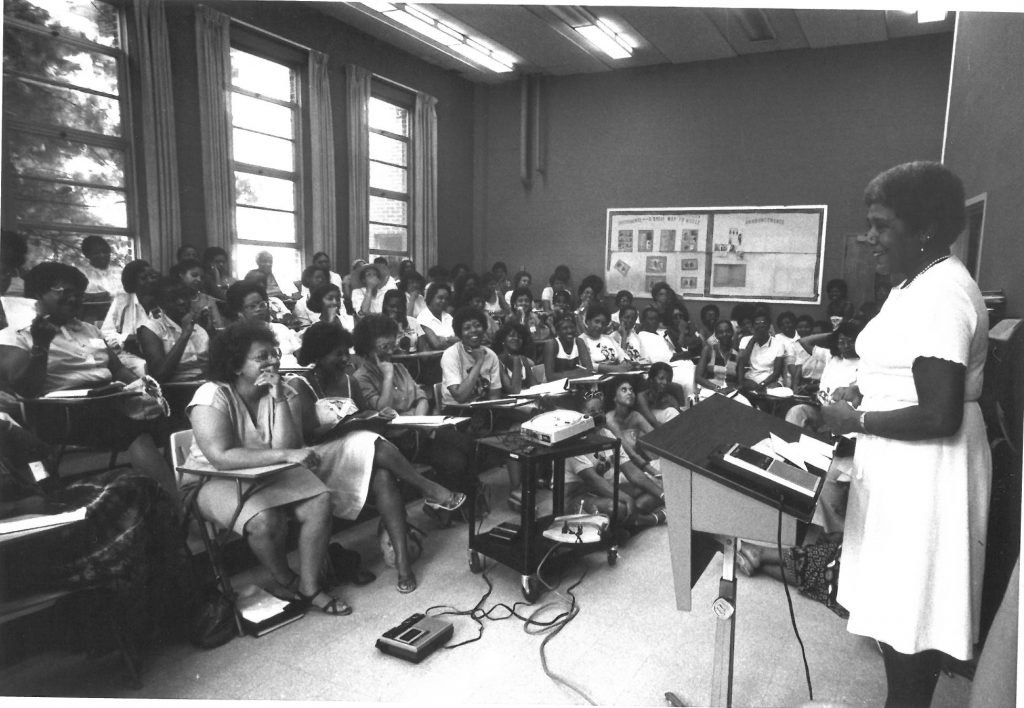
In June 1994, a caucus of twelve Black women were looking to articulate the specific unmet health care needs of Black women. They decided to call themselves the Women of African Descent for Reproductive Justice (WADRJ) and took out a full-page ad in the Washington Post entitled, “Black Women and Health Care Reform.” It ultimately garnered signatures from 836 Black women. With this seminal ad and the press conference on Capitol Hill that followed, the Reproductive Justice (RJ) Movement was born.
For nearly three decades, RJ has been recognized globally as a critical framework grounded in Black feminist thought and human rights. It is based on the practice of self-help and community care and is inclusive and applicable to everyone. Reproductive Justice is the human right “not to have children using safe birth control, abortion, or abstinence; the right to have children under the conditions we choose; and the right to parent the children we have in safe and healthy environments.” The RJ framework includes the right to bodily autonomy, free from any form of sexual or reproductive oppression. The framework is now more inclusively called Sexual and Reproductive Justice: the “complete physical, mental, spiritual, political, social, and economic well-being of women and girls based on the full achievement and protection of women’s human rights” and all people who can become pregnant.
The goal of SRJ is to advocate for and sustain the human rights of historically marginalized women, families, and communities in the United States and around the world to have the power and resources to maintain autonomy over their sexual and reproductive lives.
SRJ acknowledges the harms of repeated divestment due to structural racism and the resulting inadequate, inequitable access to resources and physical, emotional, spiritual, mental harm. The SRJ framework recognizes that reproductive autonomy is intrinsically linked to the full breadth of social determinants of health and racial equity.
Without equitable access to quality and safe healthcare, housing, education, environments, food, employment, and wages, there cannot be reproductive autonomy.

